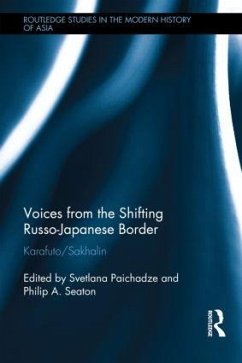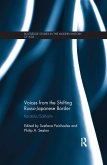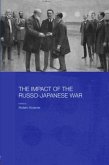In the nineteenth century, as the Russian empire expanded eastwards and the Japanese empire expanded onto the Asian continent, the Russo-Japanese border became contested on and around the island of Sakhalin, its Russian name, or Karafuto, as it is known in Japanese. Then in the wake of the Second World War, Russia seized control of the island and the Japanese inhabitants were deported. Sakhalin's history as a border zone makes it a lynchpin of Russo-Japanese relations, and as such it is a rich case study for exploring the key themes of this book: life in the borderlands, migration, repatriation, historical memory, multiculturalism and identity. With a focus on cross-border dialogue, Voices from the Shifting Russo-Japanese Border reveals the lives of the ordinary people in the border regions between Russia and Japan, and how they and their communities have been affected by shifts in the Russo-Japanese border over the past century-and-a-half. Examining the lives and experiences of repatriates from Karafuto/Sakhalin in contemporary Hokkaido and their contribution to the multicultural society of Japan's northernmost island, the chapters cover the border shifts in Karafuto/Sakhalin up until 1945, the immediate aftermath the Second World War, the commemorative practices and memories of those in both Japan and Eastern Russia, and, finally, postwar lives by drawing extensively on interviews with people in the communities affected most by the shifting border. This interdisciplinary book will be of huge interest to students and scholars across a broad range of subjects including Russo-Japanese relations, Northeast Asian history, border studies, migration studies, and the Second World War.
Hinweis: Dieser Artikel kann nur an eine deutsche Lieferadresse ausgeliefert werden.
Hinweis: Dieser Artikel kann nur an eine deutsche Lieferadresse ausgeliefert werden.








